To know if your Jeep brakes are bad, pay attention to warning signs such as squealing, grinding, or pulling to one side when braking. You should also check for a spongy brake pedal or the vehicle taking longer to stop than usual.
Regular brake inspections and maintenance are crucial to ensure your safety on the road. When it comes to vehicle maintenance, one of the most critical aspects is brake health. As a Jeep owner, it’s essential to stay vigilant and be aware of potential brake issues.
By knowing the signs of brake wear and understanding the importance of regular inspections, you can prevent major problems and keep your Jeep safe and reliable.
In this guide, we’ll explore the key indicators of bad Jeep brakes, how to address them, and the impact of proactive maintenance on your driving experience. Let’s dive into the essential knowledge to keep your Jeep’s braking system in top-notch condition.
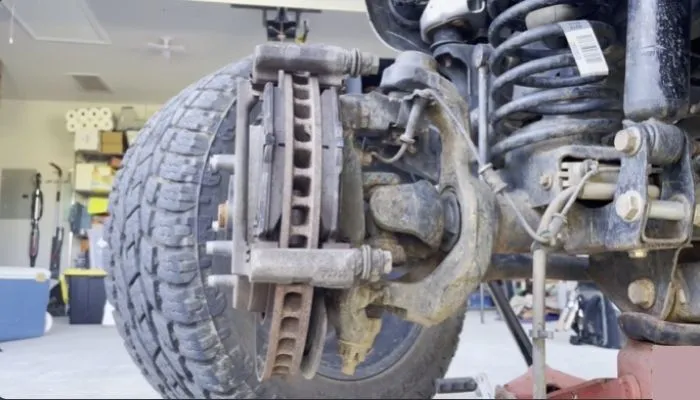
Importance Of Addressing Bad Brakes
When it comes to maintaining the safety and performance of your Jeep, addressing any issues with your brakes should be a top priority. Bad brakes can present significant risks to both the driver and passengers, as well as increase the potential for further damage to your vehicle.
1. Safety Risk To Driver And Passengers
Ensuring the safety of everyone inside your vehicle is of utmost importance. Bad brakes can compromise your ability to stop or slow down in a timely manner, increasing the risk of accidents and injuries.
For example, if your brake pads are worn out and not providing enough friction, it can result in longer stopping distances. This can be especially dangerous in emergency situations where quick reactions are crucial.
In addition, faulty brakes can lead to uneven braking or a pulling sensation while stopping, causing the vehicle to swerve unexpectedly. This instability can be particularly hazardous when driving at high speeds or navigating challenging terrain. By addressing bad brakes promptly, you can protect yourself, your passengers, and other road users from potential accidents and avoidable injuries.
2. Preventing Further Brake Damage
Ignoring issues with your brakes can lead to more extensive damage and costly repairs down the line. When issues such as worn brake pads or leaking brake fluid are left unattended, they can cause additional strain on other brake components. This can lead to premature wear and tear, reducing the overall lifespan of your braking system.
Furthermore, allowing bad brakes to persist can also cause damage to other parts of your Jeep, such as the rotors or calipers. Damaged rotors can decrease the effectiveness of the braking system, while faulty calipers can result in uneven pressure distribution, leading to braking inefficiency.
By addressing bad brakes early on, you can prevent further damage to your vehicle’s braking system, saving you from more extensive repairs and potential breakdowns in the future. Regular maintenance and prompt brake inspections can help identify any issues before they escalate and ensure optimal braking performance.
Also Read: How to Bleed Jeep Tj Brakes
Common Signs Of Bad Jeep Brakes
i) Changes In Pedal Feel
Signs of bad Jeep brakes can be identified through changes in pedal feel. If you notice the pedal becoming softer, spongy or requiring more force to stop, it could indicate issues with your brakes.
In this section, we will discuss three common signs of bad Jeep brakes in terms of pedal feel: spongy or soft pedal, pedal goes to the floor easily, and increased pressure needed to stop. Let’s take a closer look at each of these signs:
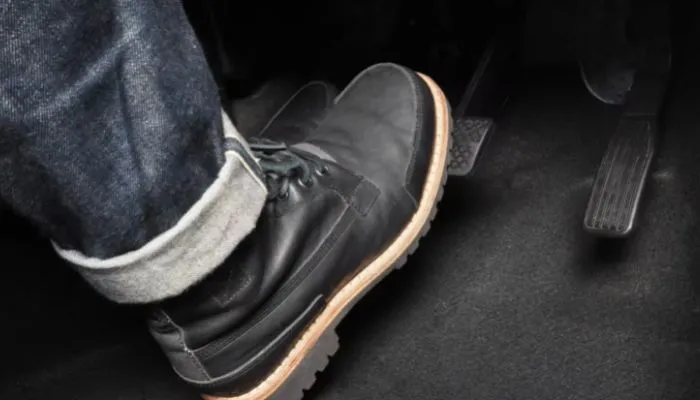
1. Spongy Or Soft Pedal
A spongy or soft pedal is a clear indication that there might be a problem with your Jeep brakes. When you press down on the brake pedal, it should feel firm and responsive. However, if you notice that the pedal feels mushy or sinks to the floor with minimal effort, it is a sign that your brakes are not functioning properly.
This spongy or soft pedal feel could be caused by air in the brake lines, worn-out brake pads, or a brake fluid leak. Ignoring this sign can compromise your ability to stop quickly and safely, putting both you and other road users at risk.
2. Pedal Goes To The Floor Easily
Another alarming sign of bad Jeep brakes is when the pedal goes to the floor with minimal resistance or effort. It should require a certain amount of pressure to engage the brakes and bring your Jeep to a stop. However, if you find that the pedal easily reaches the floor without providing the expected stopping power, it is an indication of a serious brake issue.
This problem could be due to a leak in the brake system, worn-out brake pads, or a faulty master cylinder. If your Jeep’s pedal goes to the floor easily, it is crucial to address the issue immediately to prevent any potential accidents or brake failures.
3. Increased Pressure Needed To Stop
If you have started to notice that you need to apply more pressure on the brake pedal to bring your Jeep to a complete stop, it is another telltale sign of bad brakes. Ideally, your brakes should respond promptly to moderate pressure, smoothly slowing down your vehicle.
However, if you find yourself having to push the pedal harder than usual to achieve the same level of braking power, there may be an issue with your Jeep’s braking system. This could be attributed to worn-out brake pads, contaminated brake fluid, or a problem with the brake booster. It is vital to have this problem addressed promptly to ensure your safety while driving.
ii) Noises
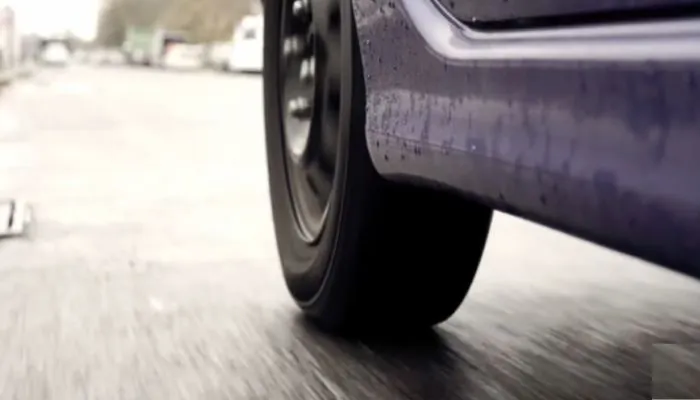
1. Grinding Metal Sound
One of the most common signs of bad Jeep brakes is a grinding metal sound when you apply the brakes. This could indicate that the brake pads have worn down and the metal of the calipers and rotors are rubbing against each other.
2. Squealing Or Chirping
Another audible sign of deteriorating brake pads is a squealing or chirping noise as you brake. This occurs when the brake pads have become too thin and metal components are in direct contact with the rotor, causing the sound.
3. Clicking Or Clunking
If you hear a clicking or clunking sound when you apply the brakes, it may be a sign of loose or damaged brake hardware. This could include loose caliper bolts, worn-out brake pads, or even a loose wheel bearing.
iii) Stopping Performance
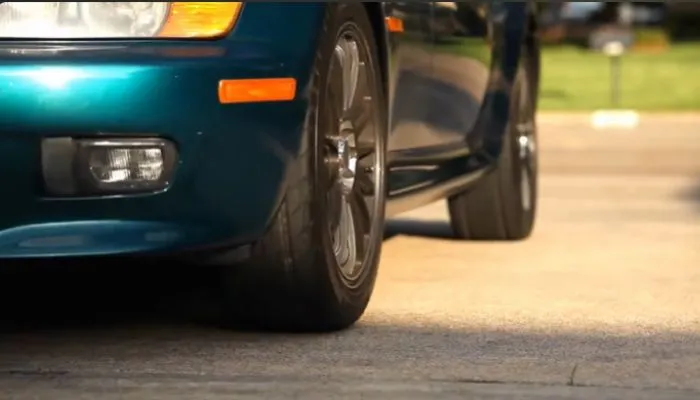
1. Increased Stopping Distance
If you notice that your Jeep’s stopping distance has increased, it could be a sign of bad brakes. This means it takes longer for your vehicle to come to a complete stop, which can be dangerous, especially in emergencies.

2. Vehicle Pulls To One Side When Braking
When you apply the brakes and your Jeep pulls to one side, it may indicate brake issues. This could be caused by uneven brake pad wear or problems with the brake calipers, and it’s important to address this issue promptly to ensure safe driving.
3. Pulsating Or Vibrating Brakes
Do you feel pulsating or vibrating sensations when you press the brake pedal? This could signify warped brake rotors, causing an uneven grip on the brake pads. It’s essential to have this checked by a professional to avoid further damage to your braking system.
iv) Visual Inspection
When it comes to your Jeep’s safety, it’s essential to be proactive in identifying any signs of bad brakes. Regular visual inspections can help you catch potential issues early on, ensuring your brakes are in optimal working condition. Here are the common signs to look out for:
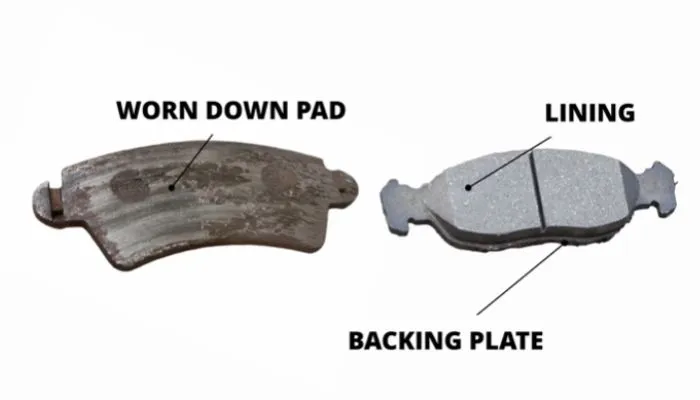
1. Thin Or Worn Brake Pads
If you notice that your brake pads have become thin or worn, it is a clear indication that they need replacement. Over time, the friction between the brake pads and the rotors wears them down – reducing their ability to slow down or stop your Jeep efficiently.
2. Deep Grooves Or Scoring On Rotors
Inspecting your Jeep’s rotors is crucial to determine the condition of your brakes. Look for deep grooves or scoring on the rotors’ surface, as these can hamper proper brake function. Deep grooves can also lead to noisy and less effective braking.
3. Leaking Brake Fluid
If you notice any signs of brake fluid leaking from your Jeep, it’s an unmistakable indication of a problem. Leaking brake fluid can compromise the hydraulic system, leading to decreased braking performance and possible brake failure. Check for wet spots, fluid stains, or a decrease in brake fluid levels.
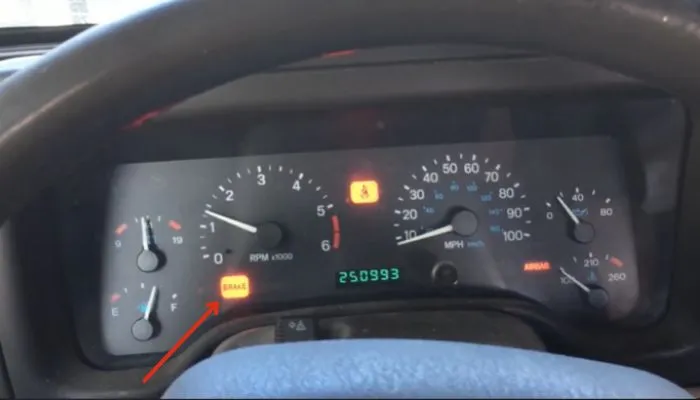
4. Warning Light On Dashboard (if Applicable)
If your Jeep is equipped with a brake warning light on the dashboard, pay close attention to it. This warning light can signal various brake-related issues, such as low brake fluid level, worn brake pads, or a malfunctioning brake system. Ignoring the warning light can lead to serious safety risks.
Driving Symptoms To Watch For
Recognizing the signs of bad brakes in your Jeep can prevent potential safety hazards on the road. It’s essential to pay attention to various driving symptoms that indicate your brakes may need attention. By identifying these signs early on, you can take the necessary steps to repair or replace your brakes before they become a more significant issue.
Below are three key driving symptoms to watch out for:
1. Braking Distance Increases
If you notice that your Jeep’s braking distance has significantly increased, it may be a clear indication of brake problems. Typically, when your brakes are in good working condition, your vehicle should come to a stop within a reasonable distance after applying the brakes.
However, if you find that you need to press the brake pedal harder than usual, or if your Jeep takes longer to stop, it’s time to inspect your brakes.
2. Pulling To One Side When Braking
If your Jeep pulls to one side when you apply the brakes, it’s a warning sign that your brakes are likely in need of attention. This pulling sensation could indicate that the braking force is uneven, possibly due to worn-out brake pads or a faulty brake caliper.
Driving with this symptom can be dangerous, as it affects your vehicle’s stability and control. Make sure to address this issue promptly to maintain optimal braking performance.
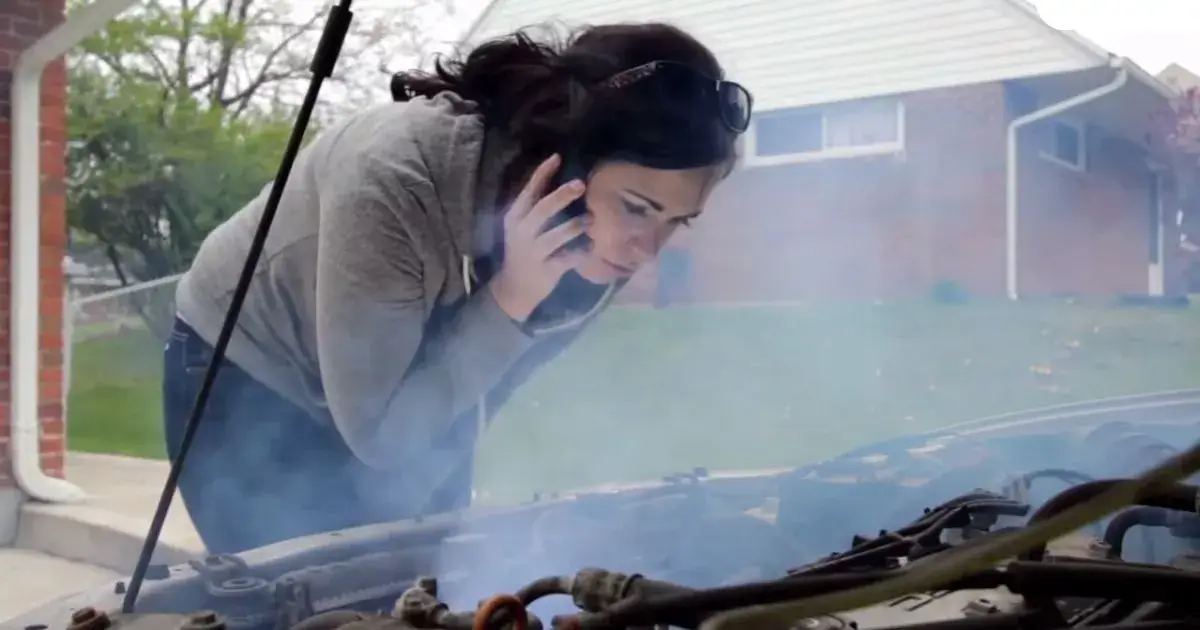
3. Burning Smell While Driving
A burning smell while driving your Jeep can be a concerning symptom of bad brakes. This odor often indicates that your brakes are overheating due to excessive friction. It may be a result of worn-out brake pads that are not effectively gripping the brake rotors.
Ignoring this smell can lead to further damage to your braking system. It is crucial to have your brakes inspected as soon as possible when you notice a burning smell while driving.
Check for any unusual noises, vibrations, or a pulsating brake pedal when you apply the brakes, as these could be signs of brake issues. Other warning signs include a longer stopping distance, a soft brake pedal, or the dashboard brake warning light illuminating.
If you notice any of these symptoms, it’s essential to have your Jeep’s brakes inspected by a professional to ensure optimal safety on the road.
Additional Considerations For Jeeps
When it comes to the question of how to know if your Jeep brakes are bad, some additional considerations apply specifically to Jeeps. These off-road vehicles have unique features and capabilities that make their brake systems different from those of standard passenger cars.
Understanding these additional factors can help you better assess the condition of your Jeep’s brakes and ensure optimal performance.
1. Specific Jeep Model Differences
Jeep models vary in size, weight, and design, which can impact brake performance. For instance:
- Jeep Wrangler: Known for its rugged off-road capabilities, the Wrangler’s brake system is built to handle demanding terrains. It features heavy-duty components and a brake system designed to provide enhanced stopping power even when tackling steep inclines or rough surfaces.
- Jeep Cherokee: This mid-size SUV offers a balance between off-road capability and everyday practicality. The Cherokee’s brake system is engineered to handle a variety of driving conditions, providing reliable stopping power both on and off the road.
- Jeep Grand Cherokee: As a larger and more refined SUV, the Grand Cherokee offers improved comfort and luxury. Its brake system is designed to accommodate the vehicle’s weight and provide smooth, controlled braking performance, both in city driving and during off-road adventures.
Knowing the specific differences between Jeep models can help you understand what to expect from their brake systems and how they should perform under various conditions.
2. Off-roading And Heavy Use
Jeeps are built for off-roading, and many Jeep owners enjoy pushing their vehicles to the limits. However, this kind of intensive use can put additional stress on the brake system. Off-roading often involves sudden stops, rock crawling, and navigating uneven terrain, all of which require reliable and efficient braking.
Tip: If you frequently utilize your Jeep for off-roading or engage in heavy towing, pay close attention to signs of brake wear such as increased stopping distance, unusual noises, or a soft pedal feel. Regular maintenance is crucial to ensure your brake system remains in optimal condition and can handle the demands you place on it.
3. Modifications
Jeep owners are known for customizing their vehicles with various aftermarket modifications to enhance performance and aesthetics. While modifications can add a unique flair to your Jeep, they can also affect its brake system. Modifying your Jeep may alter its weight, suspension, or tire size, which can impact brake performance.
Caution: Keep in mind that modifying your Jeep can potentially void the manufacturer’s warranty, so it’s important to consult with experienced professionals and consider the implications for your brake system. Ensure that any modifications you make are properly installed and do not compromise the effectiveness of your brakes.
Final Words
If you experience any warning signs of bad brakes in your Jeep, such as squealing, vibrating, or a longer braking distance, it is crucial to address the issue promptly. Regular maintenance and inspections are essential to ensure the safety and reliability of your vehicle.
Don’t neglect your brakes; as they play a vital role in keeping you and your passengers safe on the road. Stay aware and take action when needed to maintain the optimal performance of your Jeep’s braking system.
FAQs
How Do I Know If My Jeep Brakes Are Bad?
If your Jeep brakes are bad, you may experience warning signs such as squeaking or grinding noises, vibrations while braking, a spongy brake pedal, or longer stopping distances. It’s important to pay attention to these signs and have your brakes inspected by a professional to ensure your safety on the road.
What Causes Jeep Brakes To Go Bad?
Several factors can cause Jeep brakes to go bad, including worn brake pads or rotors, brake fluid leaks, or a malfunctioning brake system. Factors like aggressive driving, excessive heat, and heavy loads can also contribute to brake wear and tear.
Regular maintenance and routine inspections can help prevent brake problems.
How Often Should I Replace My Jeep Brake Pads?
The frequency of brake pad replacement depends on various factors, such as driving habits, terrain, and the type of brake pads used. However, as a general guideline, it’s recommended to inspect your brake pads every 12,000 miles and replace them if they have less than 1/8 inch of friction material remaining.
Consulting your Jeep’s owner’s manual or a trusted mechanic can provide more specific recommendations.
How Long Do Jeep Brake Rotors Typically Last?
The lifespan of Jeep brake rotors can vary depending on driving conditions and habits. On average, brake rotors can last anywhere from 30,000 to 70,000 miles. However, factors like aggressive driving, heavy loads, and exposure to road salt can accelerate rotor wear.
Regular inspections and maintenance will help determine when it’s time to replace your brake rotors.

